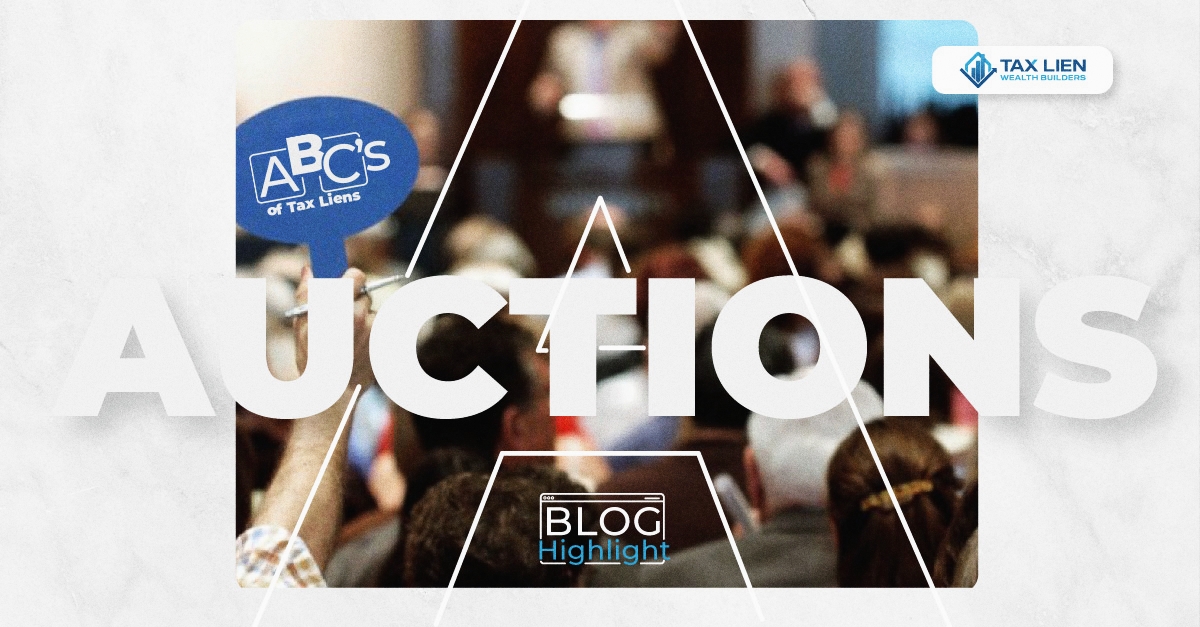A – Auctions
Tax liens are typically sold through auctions conducted by local governments. These auctions can be in-person or online. Investors bid on the right to claim the unpaid taxes on a property.
In-Person Auctions:
- This is the “old-school” traditional style where interested investors gather at a designated location, often at the county courthouse.
The auctioneer presents properties with unpaid taxes, and investors bid competitively to secure the tax lien.
Online Auctions:
- With the advancement of technology, many local governments now conduct tax lien auctions online.
This means you, the investor can buy a tax lien from anywhere you are in the world. All you need is an internet connection. Online bidding also has very tight security measures that protect you.
Auction Dynamics:
- Bidding dynamics can vary. Some auctions involve competitive bidding where participants actively increase their bids, while others may use a round-robin or rotational bidding system.
Minimum Bid Requirements:
- Local governments often set minimum bid requirements to ensure that the unpaid taxes, at the very least, are covered. Investors need to be aware of these minimums when participating in auctions.
Winning the Bid:
- The highest bidder at the end of the auction secures the tax lien. Winning the bid means that the investor has the right to claim the unpaid taxes on the property and earn interest on the investment.
Payment and Documentation:
- If your bid is the winning one, you’ll need to promptly pay the full amount. Subsequently, the local government will issue you documentation, often in the form of a tax lien certificate, confirming your status as the lien holder.
Don’t Forget The Redemption Period:
- All investors should be mindful of the redemption period—the timeframe during which the property owner can pay off the overdue taxes. If the property owner redeems the tax lien during this period, the investor receives the invested amount along with accrued interest.
Due Diligence Before Bidding:
- Successful participation in tax lien auctions requires thorough due diligence.
For example, what are the homes around that area worth, and what are the local regulations?
You must always do your homework on the properties up for auction, and understand their value, potential risks, and any other relevant factors before placing bids.
Competition and Strategy:
- Auctions can be competitive, and strategic bidding is essential. Investors need to balance the potential returns with the risks associated with each property. Developing a clear bidding strategy contributes to successful outcomes.
Participating in tax lien auctions is a dynamic process that demands a combination of research, strategy, and quick decision-making.
Investors who navigate auctions with diligence and a well-defined plan are better positioned to capitalize on the opportunities presented by tax liens.
Happy Investing







